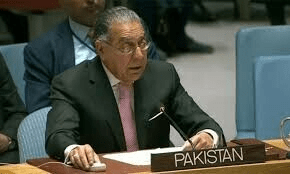PESHAWAR, Oct 2: Cardiologists at a symposium attributed smoking, lack of exercise, obesity, hypertension and diabetes as contributory agents adding to the number of patients afflicted with heart disorders.
"Thirty per cent of the people were killed by heart diseases worldwide, of which 80 per cent happened to be in developing countries," said, Dr Syed Kiramat Ali Shah, president of the Pakistan Cardiac Society (PCS), while speaking at the symposium on preventive measures of heart ailments here on Saturday. The symposium was organized by the PCS in collaboration with the Postgraduate Medical Institute (PGMI).
He said that 90 per cent of the heart-related diseases could be avoided by taking preventive measures, such as quitting smoking, indulging in physical activities, adopting healthy life style and taking hygienic food.
"It is a matter of concern that 25 per cent of students are smokers and exposed to coronary ailments. The government should place complete ban on the advertisement of cigarettes in print and electronic media," he said.
Convener of the symposium, Dr Mohammad Hafizullah said cardiac ailment was the major killer in the world, according to WHO report. Nearly 2.3 million people die in India and Pakistan annually and could cause 4.5 million deaths by the year 2020 if efforts weren't made for its prevention, he feared.
The economic cost of cigarettes, he said, was $1.5 billion annually, which could touch the figure of $200 billion by the year 2030.
Citing a report published in the British Medical Journal, he said that 7.1 per cent of the South Asians living in Britain suffered from diabetes and 75 per cent from hypertension.
One in three persons was a smoker in South Asia and people got heart ailments earlier than the people do in the UK or the US, he said.
Dr Hafizullah said a new state-of-the-art angiography machine was being installed at the cost of Rs80million in the Lady Reading Hospital (LRH).
He claimed that 70 per cent of the people needing investigations for cardiac diseases were entertained free.
"Still, we need to take measures for preventive cardiology and launch research project aimed at ascertaining the cause of the increase in the heart ailments among the local population," he said.
Dr Abdul Samad, PCS secretary, said the population of Peshawar was only 95,000 in 1906, which has touched the mark of more than 2.3million. Given the magnitude of the number of cardiac patients, it was necessary to establish an institute of cardiology in the city, he added.
PGMI Dean Dr Arshad Javaid was of the view that the government should increase the number of seats for trainee medical officers (TMOs) at hospitals to produce more specialists.
Chief Minister Akram Durrani, who was chief guest on the occasion, said that he was trying to bring back the consultants, who had resigned in protest against the institution-based practice.
"We know that medical colleges had suffered immensely following the resignation of these doctors," the chief minister said.












































Dear visitor, the comments section is undergoing an overhaul and will return soon.